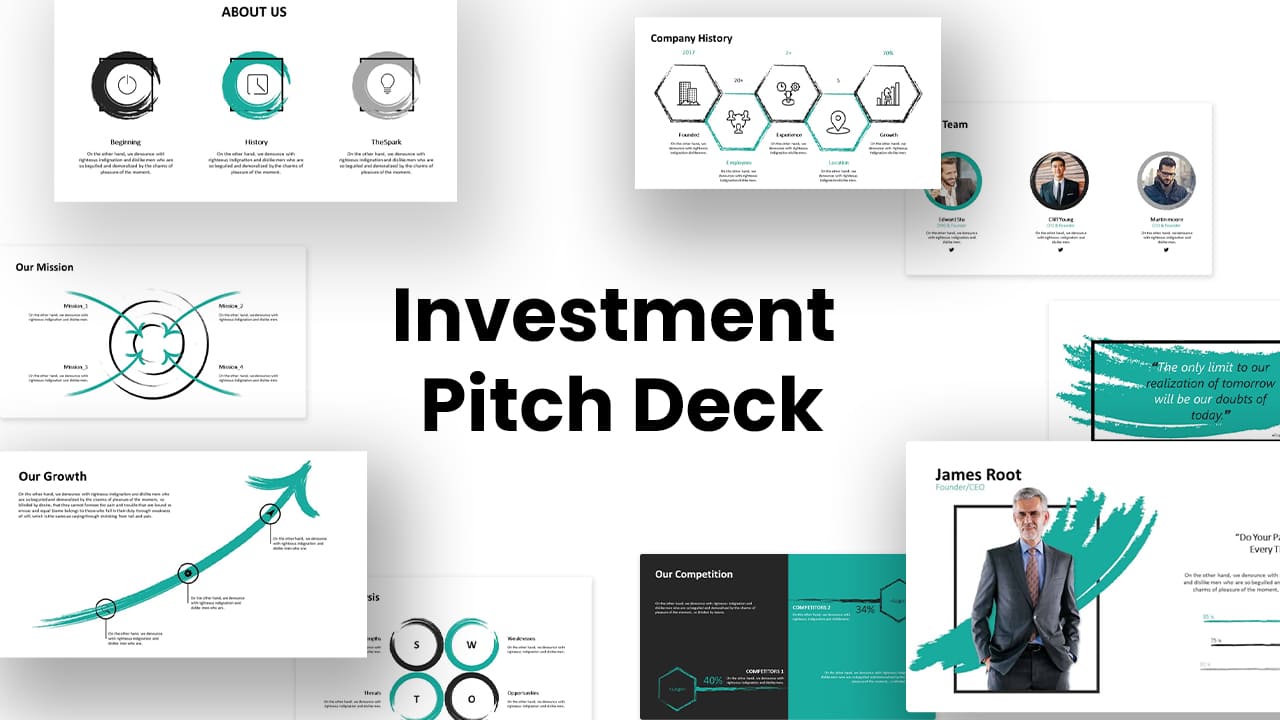In the fast-paced world of startups, having a solid pitch deck can make all the difference between success and failure. But what exactly is a pitch deck, and why is it essential for startups? Let’s delve into the intricacies of pitch decks and explore their significance in the startup ecosystem. Here is are complete guide to Understanding the Pitch Deck for Startups.
What is a Pitch Deck for Startups?
A pitch deck is a concise, visually engaging presentation that outlines the key aspects of a startup business. It serves as a tool for entrepreneurs to communicate their business idea, vision, value proposition, and growth potential to potential investors, partners, and stakeholders. Typically consisting of slides, a pitch deck distills complex concepts into digestible bites, making it easier for audiences to grasp the essence of the startup.
Key Components of a Pitch Deck for Startups:
Problem Statement:
Clearly define the problem or pain point that your startup aims to address. Highlight the significance of the problem and the market opportunity it presents.
Solution:
Present your innovative solution or product that addresses the identified problem. Showcase how your solution offers a unique value proposition and sets your startup apart from competitors.
Market Opportunity:
Provide insights into the target market size, growth potential, and trends. Demonstrate a thorough understanding of the market landscape and how your startup intends to capture market share.
Business Model:
Outline your startup’s revenue model, pricing strategy, and monetization plans. Articulate how your business intends to generate revenue and achieve profitability over time.
Traction:
Showcase any significant milestones, achievements, or traction your startup has attained. This could include customer acquisitions, partnerships, revenue growth, or product development milestones.
Team:
Introduce the key members of your startup team and their relevant expertise, experience, and qualifications. Investors often invest in the team as much as the idea, so highlighting the team’s capabilities is crucial.
Financial Projections:
Provide a snapshot of your startup’s financial projections, including revenue forecasts, expenses, and growth projections. Investors want to see a clear path to profitability and a solid understanding of the financials.
Call to Action:
Conclude your pitch deck with a clear call to action, whether it’s requesting a meeting with potential investors, seeking partnerships, or inviting further discussion.
The Importance of Pitch Decks for Startups:
Capturing Attention:
In a competitive landscape, a well-crafted pitch deck can grab the attention of investors and stakeholders, sparking interest in your startup.
Communicating Value:
Pitch decks serve as a powerful tool to effectively communicate the value proposition, potential, and scalability of your startup concisely and compellingly.
Building Credibility:
A professionally designed pitch deck can instill confidence in investors and stakeholders, demonstrating that your startup is well-prepared, organized, and capable of executing its vision.
Securing Funding:
Perhaps most importantly, pitch decks play a critical role in securing funding for startups. A persuasive pitch deck can attract investors and venture capitalists, paving the way for fundraising success.
Beyond the Slides: Crafting a Compelling Narrative
A pitch deck isn’t just a collection of information – it’s a story. Weave a narrative that captures the imagination of investors. Here are some tips:
Keep it concise: Aim for 10-15 slides, delivered clearly and engagingly.
Visually Appealing: Use high-quality visuals, data charts, and infographics to make your message impactful.
Practice Makes Perfect: Rehearse your pitch beforehand to ensure you deliver it confidently and within the allotted time.
Example of Pitch Deck for Startups
Slide 1: Cover Slide
- Company Logo
- Company Name: XYZ Technologies
- Tagline: Revolutionizing the Future of Tech
Slide 2: Problem Statement
- Title: Addressing a Pressing Need
- Problem: Lack of Accessible Tech Education for Underprivileged Communities
- Statistics: Highlight statistics on the digital divide and its impact
- Solution: Introduce XYZ Technologies’ innovative solution
FAQ For Pitch Deck for Startups
Q: What is a pitch deck?
A: A pitch deck is a presentation typically consisting of slides that entrepreneurs use to showcase their business idea, vision, and potential to investors, partners, and stakeholders.
Q: What should be included in a pitch deck for startups?
A: A typical pitch deck includes slides covering the problem statement, solution, market opportunity, business model, traction, team, financial projections, and a call to action.
Q: How long should a pitch deck be?
A: A pitch deck should be concise and focused, usually consisting of 10-15 slides. It should convey the essential information about the startup without overwhelming the audience.
Q: What is the purpose of a pitch deck?
A: The primary purpose of a pitch deck is to communicate the value proposition, potential succinctly, and viability of a startup to potential investors, partners, and stakeholders. It serves as a tool to generate interest, secure funding, and build credibility.
Q: How should I design my pitch deck?
A: Design your pitch deck to be visually engaging and easy to understand. Use clear, concise language, complemented by compelling visuals and graphics. Maintain consistency in design elements and ensure that the overall presentation is professional and polished.
Q: Can I customize my pitch deck for different audiences?
A: Yes, it’s advisable to tailor your pitch deck to suit the specific needs and interests of different audiences. Customize your content and messaging based on factors such as the background of the audience, their areas of expertise, and their investment preferences.
Q: How should I practice presenting my pitch deck?
A: Practice presenting your pitch deck multiple times to refine your delivery and ensure that you can confidently articulate your key points. Pay attention to your tone, body language, and pacing, and be prepared to answer questions and address feedback effectively.
Q: What should I do after presenting my pitch deck?
A: After presenting your pitch deck, follow up with the audience to gather feedback, answer any additional questions, and explore potential next steps. Maintain open communication and be proactive in nurturing relationships with potential investors and partners.
If you need assistance creating a pitch deck for your startup, look no further than TheStartupGig. Our team specializes in crafting compelling and professional pitch decks to help you effectively communicate your business idea and secure funding. Contact us today to learn how we can support your startup journey.
Conclusion:
In the dynamic world of startups, a well-crafted pitch deck is an indispensable asset for entrepreneurs seeking to make their mark. By effectively articulating the value proposition, potential, and viability of their business idea, startups can captivate investors, build credibility, and secure the resources needed to fuel growth and success.




